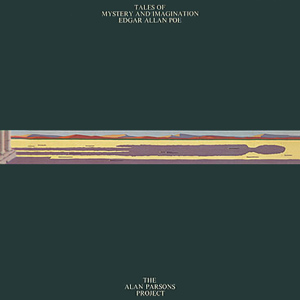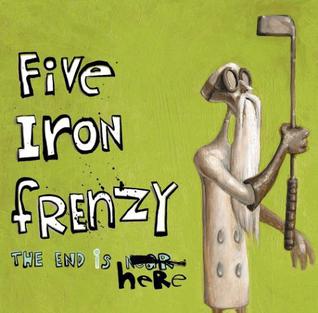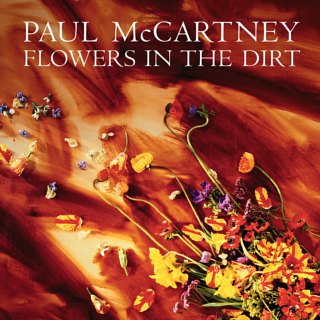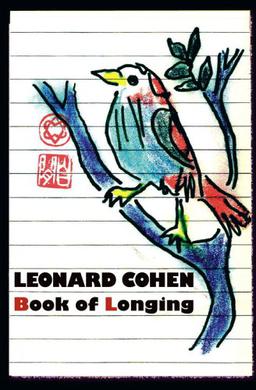
Tales of Mystery and Imagination (Edgar Allan Poe) is the debut studio album by British rock band the Alan Parsons Project. It was released on 25 June 1976 in the United Kingdom by Charisma Records and 20th Century Fox Records in the U.S. The lyrical and musical themes of the album, which are retellings of horror stories and poetry by Edgar Allan Poe, attracted a cult audience. The title of the album is taken from the title of a collection of Poe's macabre stories of the same name.

Bernard John Taupin is an English lyricist and visual artist. He is best known for his songwriting partnership with Elton John, recognised as one of the most successful partnerships of its kind in history. Taupin is behind the majority of John's songs, dating back to the 1960s.

Tarkus is the second studio album by English progressive rock band Emerson, Lake & Palmer, released on 14 June 1971 on Island Records. Following their debut tour across Europe during the second half of 1970, the group paused touring commitments in January 1971 to record a new album at Advision Studios in London. Greg Lake produced the album with Eddy Offord as engineer.

Brain Salad Surgery is the fourth studio album by English progressive rock band Emerson, Lake & Palmer, released on 7 December 1973 by their new record label, Manticore Records, and distributed by Atlantic Records.

Joseph Arthur is an American singer-songwriter and artist from Akron, Ohio. He is best known for his solo material, and as a member of Fistful of Mercy and RNDM. Arthur has built his reputation over the years through critically acclaimed releases and constant touring; his unique solo live performances often incorporate the use of a number of distortion and loop pedals, and his shows are recorded live at the soundboard and made available to concertgoers immediately following the show on recordable media.

Wheels of Fire is the third album by the British rock band Cream. It was released in the US in June 1968 as a two-disc vinyl LP, with one disc recorded in the studio and the other recorded live. It was released in the UK in the same format on August 9.

Forever Young is the debut studio album by German synth-pop band Alphaville. It was released on 27 September 1984 by Warner Music Group. Four singles supported the album, "Big in Japan", "Sounds Like a Melody", "Forever Young", and "Jet Set". The album charted well, hitting the Top 20 in six European countries and reaching number 1 in Norway and Sweden. Alphaville followed up with their second album in 1986 with the release of Afternoons in Utopia.

Slaughter of the Soul is the fourth studio album by Swedish melodic death metal band At the Gates, released on 14 November 1995 by Earache Records. It was their last album before their eleven-year breakup from 1996 to 2007. Slaughter of the Soul is considered a landmark in melodic death metal and played a major role in popularizing the Gothenburg scene, alongside The Jester Race by In Flames and The Gallery by Dark Tranquillity. The album was recorded and mixed in Studio Fredman, early 1995.

Lifehouse Chronicles is a box set released in 2000 by Pete Townshend with the focus of the box being the formerly "abandoned" Lifehouse rock opera. The set contains song demos by Pete Townshend; including solo versions of "Baba O'Riley", "Won't Get Fooled Again", and "Who Are You", and the Lifehouse Radio Program. The box set release was followed by two Sadler's Wells Lifehouse concerts and the release of a live CD and video/DVD titled, respectively, Pete Townshend Live: Sadler's Wells 2000 and Pete Townshend – Music from Lifehouse.

The End is Near is the fifth studio album by the American band Five Iron Frenzy, self-released on June 18, 2003. The album was later widely re-released as a part of double album titled The End is Here by Five Minute Walk Records on April 20, 2004. The double album includes both the studio album and a live recording of the band's final concert performance. The album was intended as the band's last as was the tour used to promote it, until the band announced a reunion in 2011 and new album, Engine of a Million Plots released in 2013.

Ship Arriving Too Late to Save a Drowning Witch is an album by American musician Frank Zappa, released in May 1982 and digitally remastered in 1991. It features five tracks composed by Zappa, and one song, "Valley Girl", co-written with his then-14 year old daughter Moon Zappa, who provided the spoken monologue mocking Valley girls, including phrases like "Gag me with a spoon!".

Redemption's Son is the third studio album by Joseph Arthur. The double album was first released in the UK only on May 20, 2002, due to Joseph being dropped by Virgin Records/EMI in the US. Eventually, Enjoy Records picked up the record and released it stateside on November 26, 2002 with a slightly different track listing and alternate artwork.
Real World/Virgin released the album Come to Where I'm From in the States, but when Arthur wanted to start his next project, Virgin backed off. But his overactive muse couldn't wait for corporate support, so he jumped into recording regardless. Arthur ended up with Redemption's Son, plus another two albums' worth of songs, which were released over the course of four EPs called Junkyard Hearts 1-4. "I make three or four records a year, but I've only been able to get 'em out every two or three years," says Arthur.

Pipes of Peace is the fourth solo studio album by English singer-songwriter Paul McCartney, released on 31 October 1983. As the follow-up to the popular Tug of War, the album came close to matching the commercial success of its predecessor in Britain but peaked only at number 15 on America's Billboard Top LPs & Tape chart. While Pipes of Peace was the source of international hit singles such as "Say Say Say" and the title track, the critical response to the album was less favourable than that afforded to Tug of War.

Flowers in the Dirt is the eighth solo studio album by Paul McCartney. The album was released on 5 June 1989 on Parlophone, as he was embarking on his first world tour since the Wings Over the World tour in 1975–76. It earned McCartney some of his best reviews for an album of original songs since Tug of War (1982). The album made number one in the United Kingdom and Norway and produced several hit singles. The album artwork was a collaboration between artist Brian Clarke, who painted the canvas and arranged the flowers, and Linda McCartney, who produced the cover photography.

Ella Fitzgerald Sings the George and Ira Gershwin Song Book is a box set by American jazz singer Ella Fitzgerald that contains songs by George and Ira Gershwin with arrangements by Nelson Riddle. It was produced by Norman Granz, Fitzgerald's manager and the founder of Verve Records. Fifty-nine songs were recorded in the span of eight months in 1959. It is one of the eight album releases comprising what is possibly Fitzgerald's greatest musical legacy: Ella Fitzgerald Sings The Complete American Songbook, in which she recorded, with top arrangers and musicians, a comprehensive collection of both well-known and obscure songs from the Great American Songbook canon, written by the likes of Cole Porter, Rodgers & Hart, Irving Berlin, Duke Ellington, George and Ira Gershwin, Harold Arlen, Jerome Kern, and Johnny Mercer.
The music of the video game Final Fantasy XII was composed primarily by Hitoshi Sakimoto. Additional music was provided by Masaharu Iwata and Hayato Matsuo, who also orchestrated the opening and ending themes. Former regular series composer Nobuo Uematsu's only work for this game was "Kiss Me Good-Bye", the theme song sung by Angela Aki. The Final Fantasy XII Original Soundtrack was released on four Compact Discs in 2006 by Aniplex. A sampling of tracks from the soundtrack was released as an album entitled Selections from Final Fantasy XII Original Soundtrack, and was released in 2006 by Tofu Records. Additionally, a promotional digital album titled The Best of Final Fantasy XII was released on the Japanese localization of iTunes for download only in 2006. "Kiss Me Good-Bye" was released by Epic Records as a single in 2006, and Symphonic Poem "Hope", the complete music from the game's end credits, was released by Hats Unlimited the same year. An abridged version of the latter piece, which originally accompanied a promotional video for the game, was included in the official soundtrack album. An album of piano arrangements, titled Piano Collections Final Fantasy XII, was released by Square Enix in 2012.

Book of Longing was the first new poetry book by Leonard Cohen since 1984's Book of Mercy. First published in 2006 by McClelland and Stewart, Book of Longing contains 167 previously unpublished poems and drawings, mostly written at a Zen monastery on Mount Baldy in California, where Cohen lived from 1994 to 1999, and in India, which he visited regularly during the late 1990s. The book also incorporates a number of poems written after his 1978 book, Death of a Lady's Man. These presumably were left out of his 1984 Book of Mercy, which contained only psalm-like meditations. Book of Longing also collects some of the lyrics to songs from the albums Ten New Songs (2001) and Dear Heather (2004). Many of these poems were first published at The Blackening Pages of The Leonard Cohen Files website.

The Galilean Satellites is the first studio album by American post-metal band Rosetta, released in 2005 on Translation Loss Records. The album is two discs long and the track lengths on each disc correspond to each other, indicating that the band intended the albums to be played at the same time. Disc one is in a post-metal style while disc two is ambient noise.

Happiness Is the Road is Marillion's 15th studio album, released in 2008 as two separate album-length volumes respectively titled Essence and The Hard Shoulder. The overall playing time is 110 minutes, taking it to double album length.

Made in California (1962–2012) is a compilation box set by the Beach Boys, released on August 27, 2013. The set, released through Capitol Records, was designed by Mark London in a form emulating a high school yearbook. The set contains six CDs with tracks that span the band's entire career, including outtakes, demos, B-sides, rarities, alternate takes and versions, plus over 60 previously unreleased. It supersedes the theretofore career-spanning 1993 box set Good Vibrations: Thirty Years of The Beach Boys, which followed a similar premise.



















